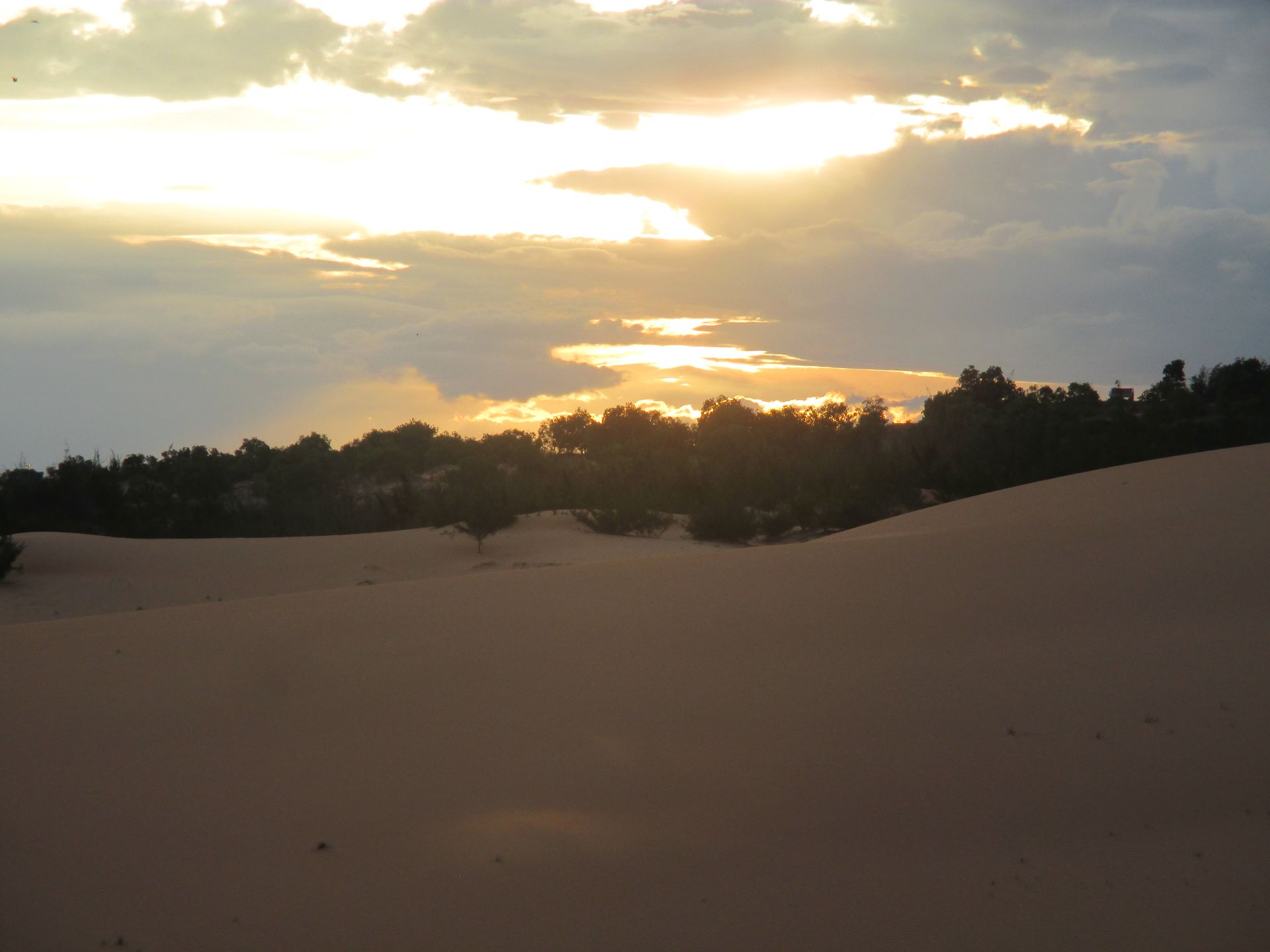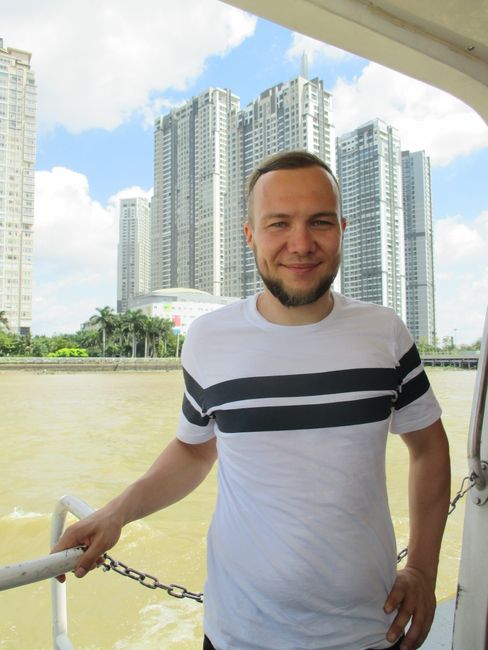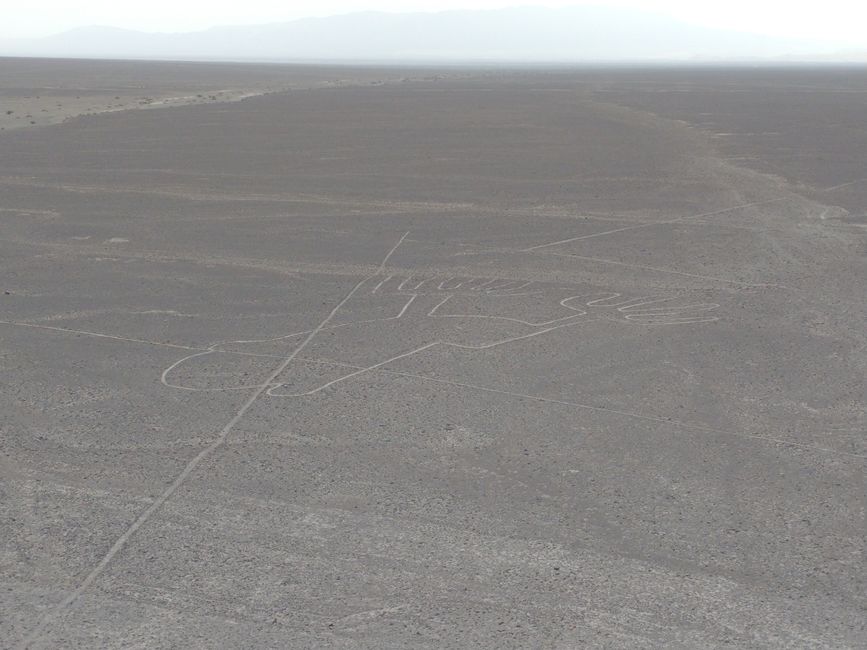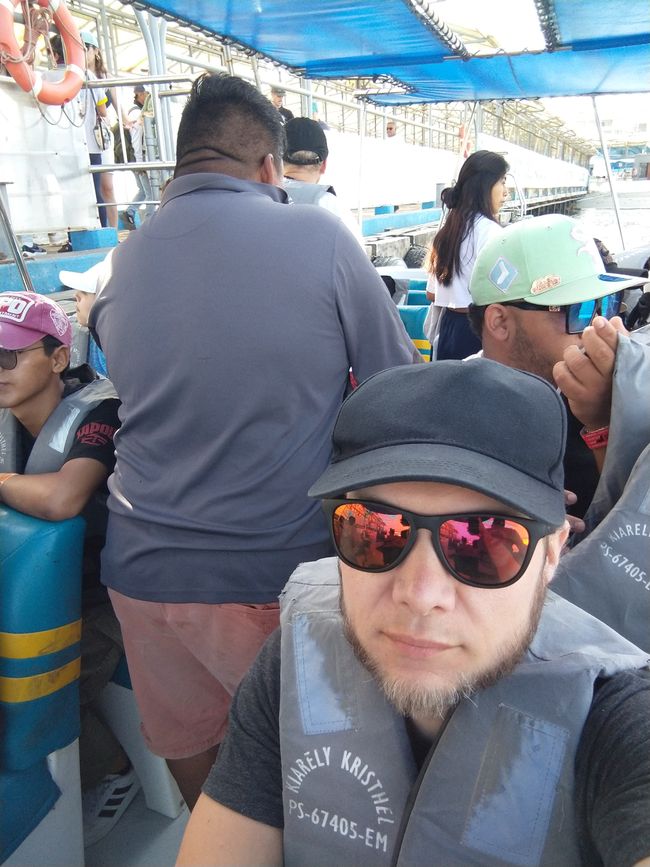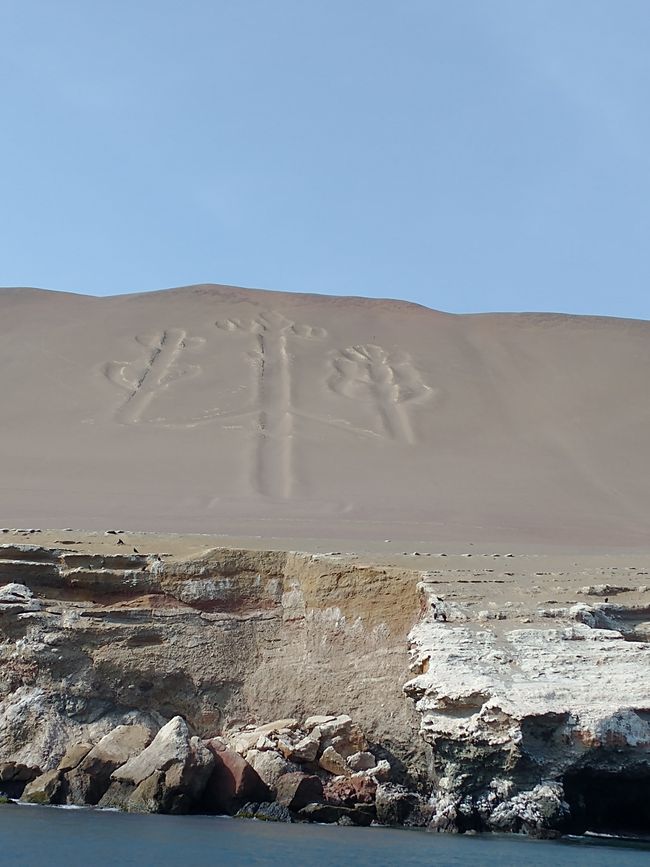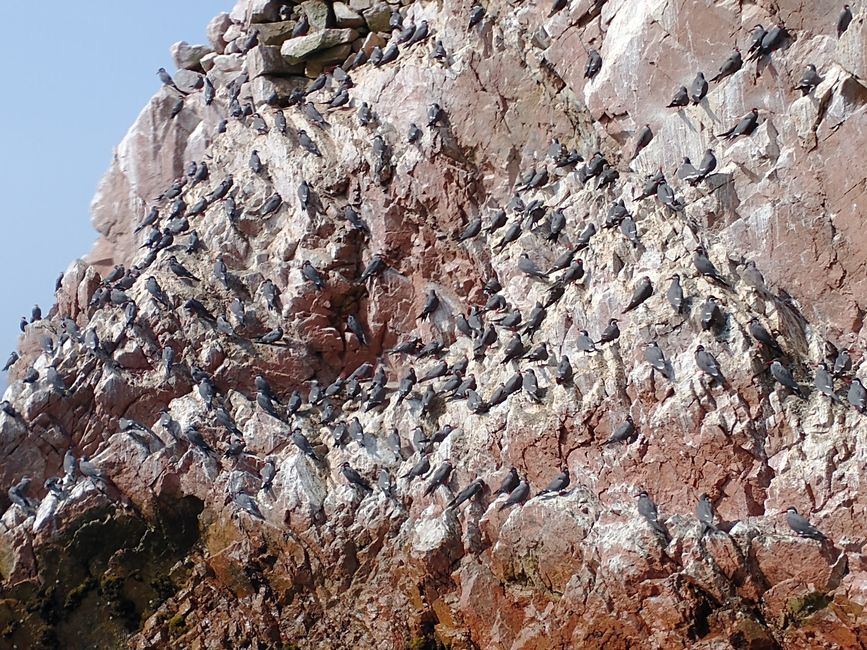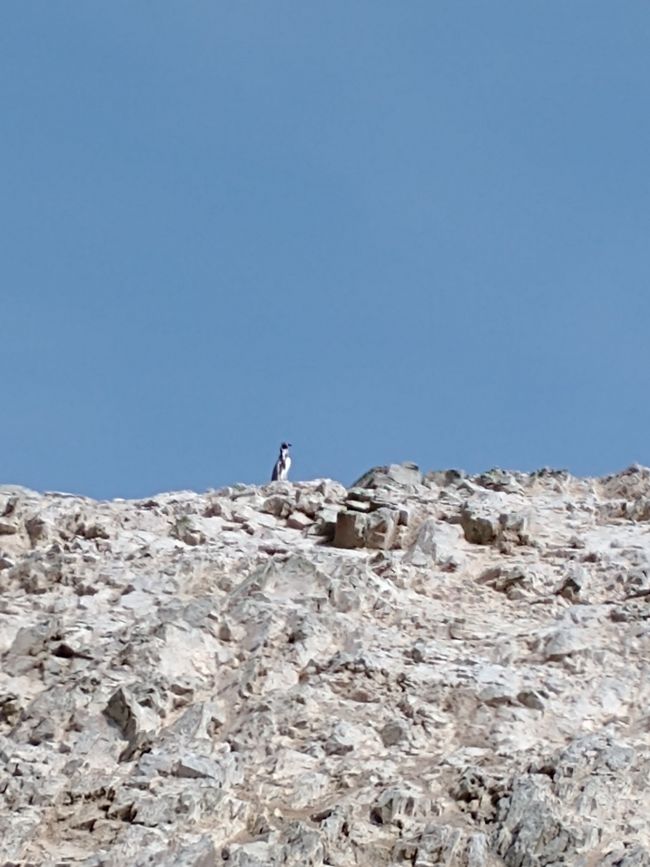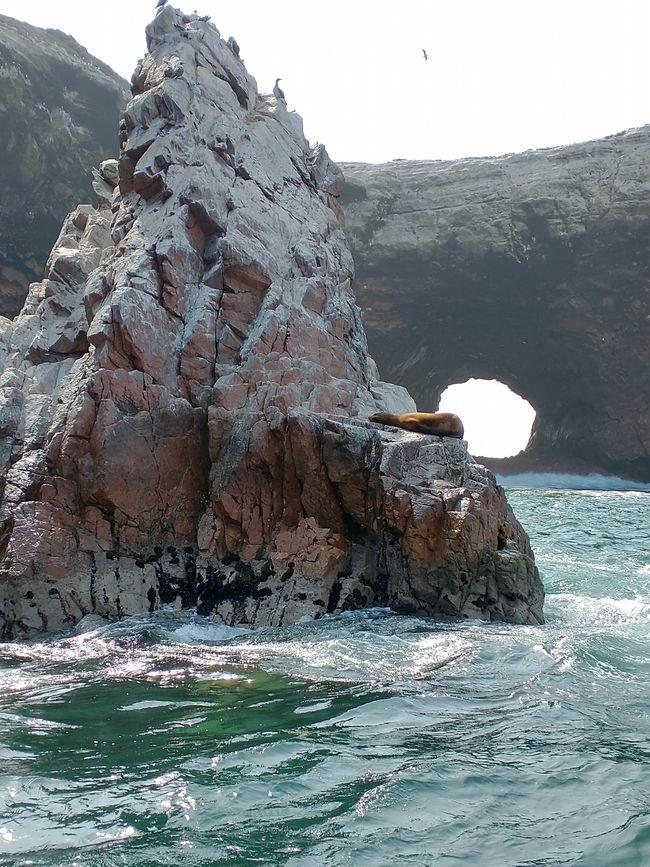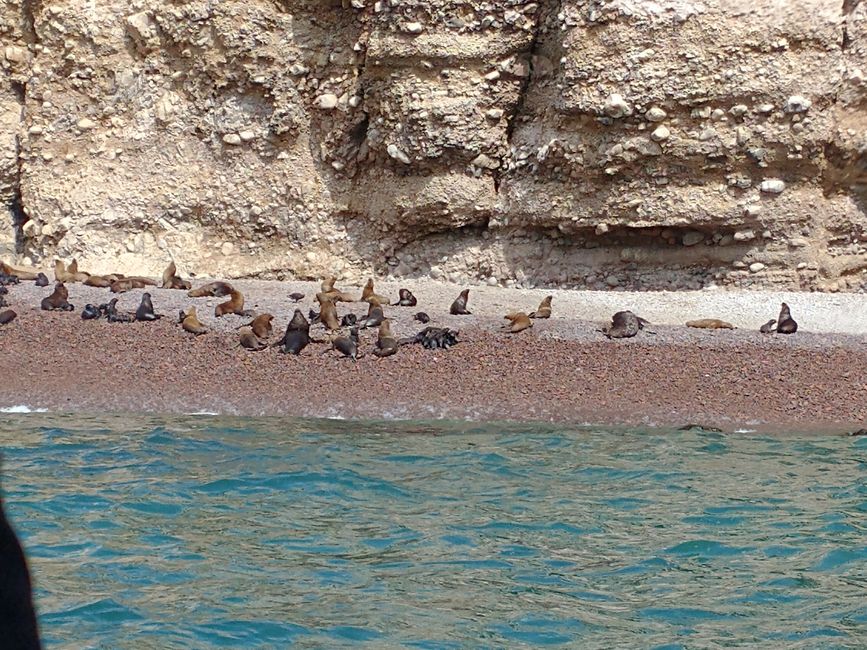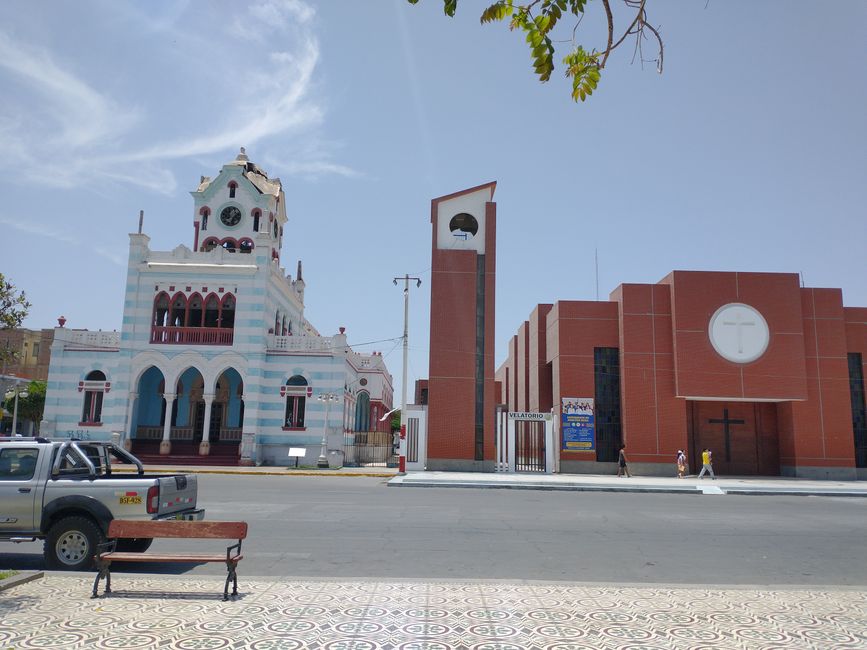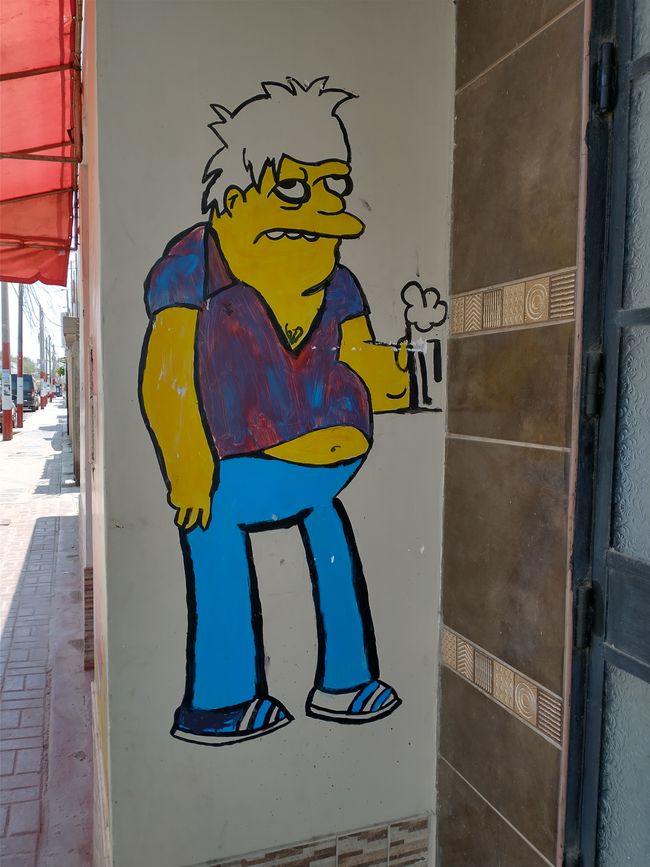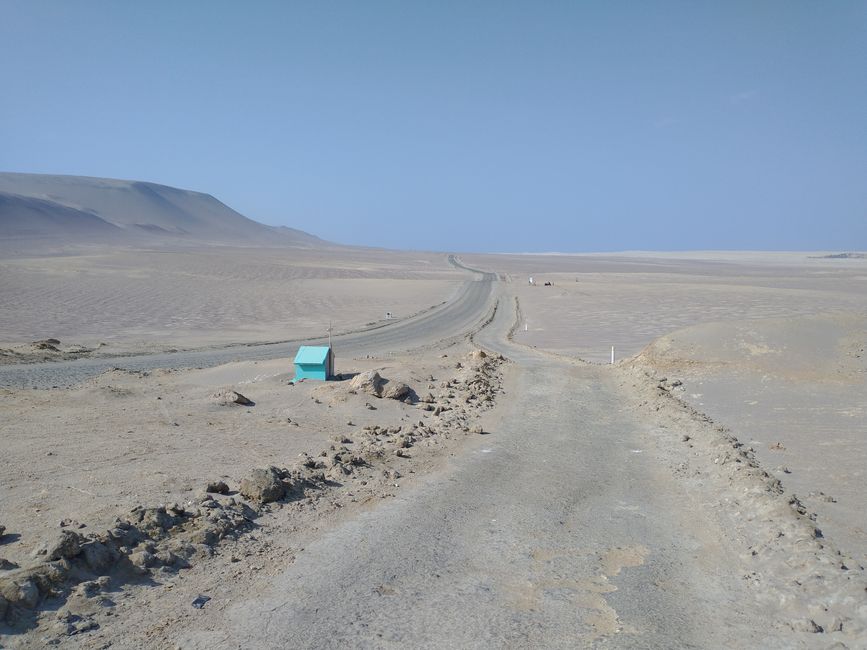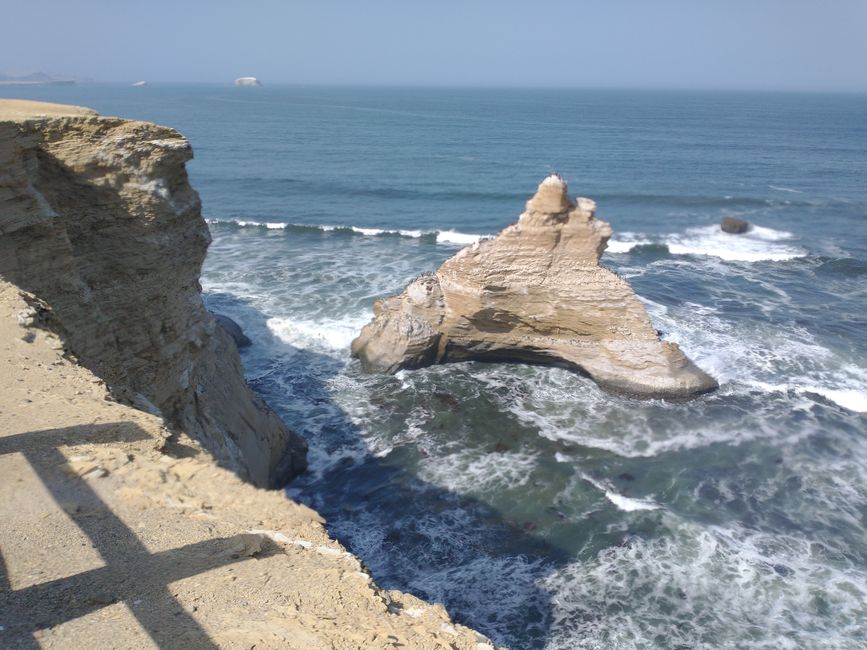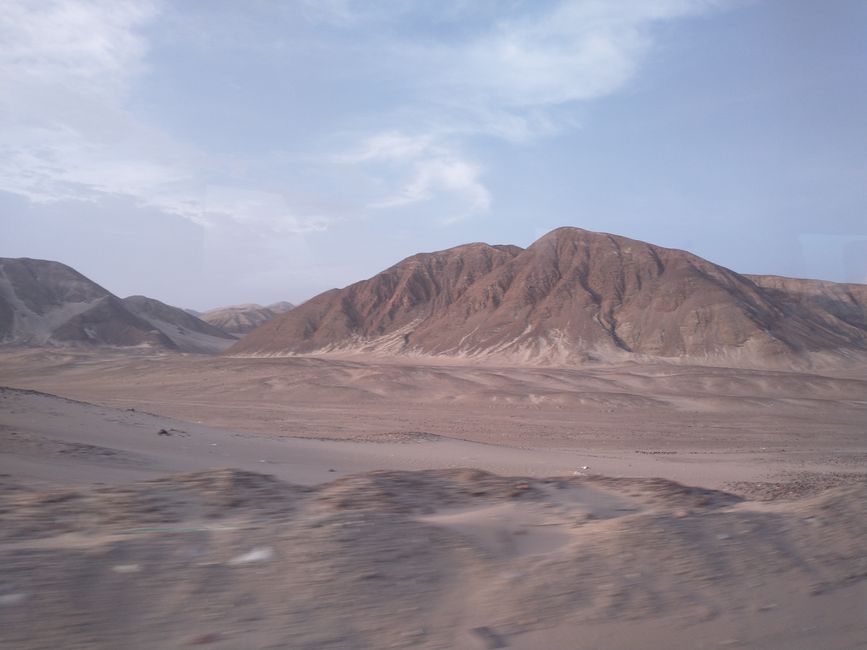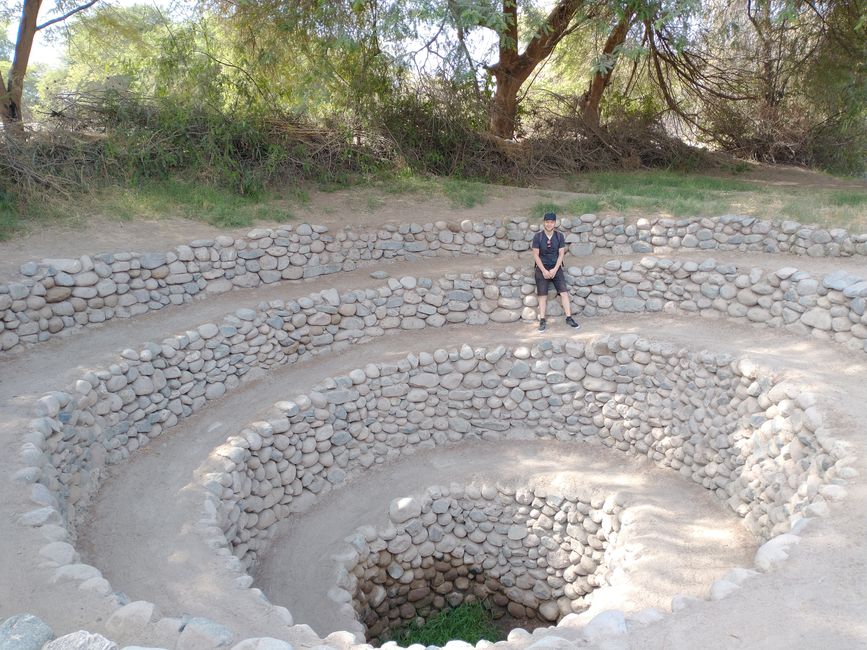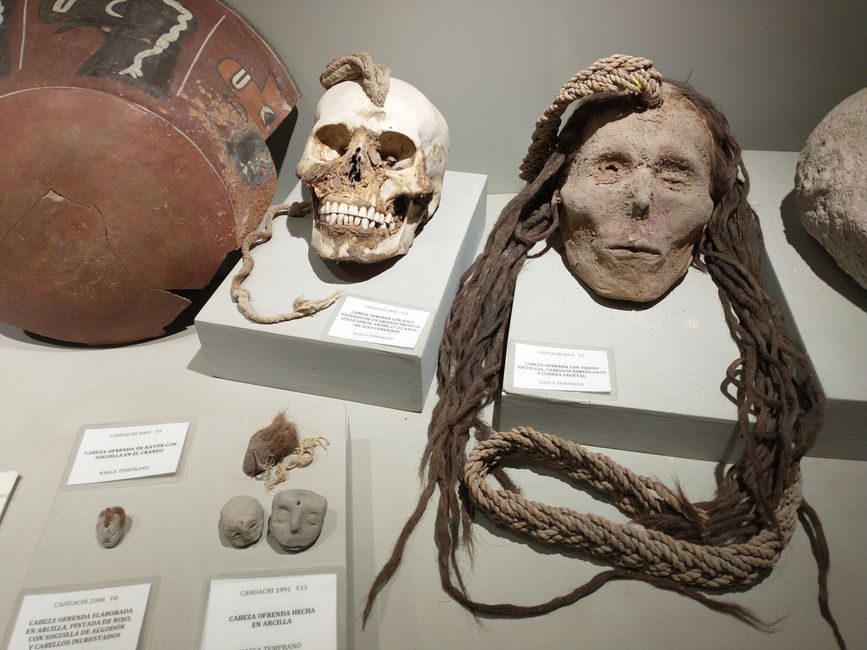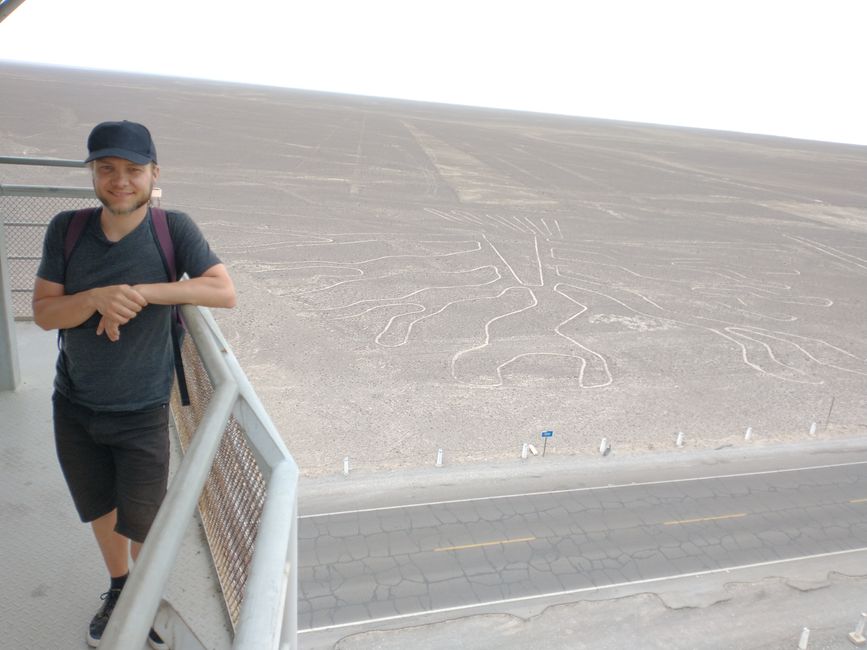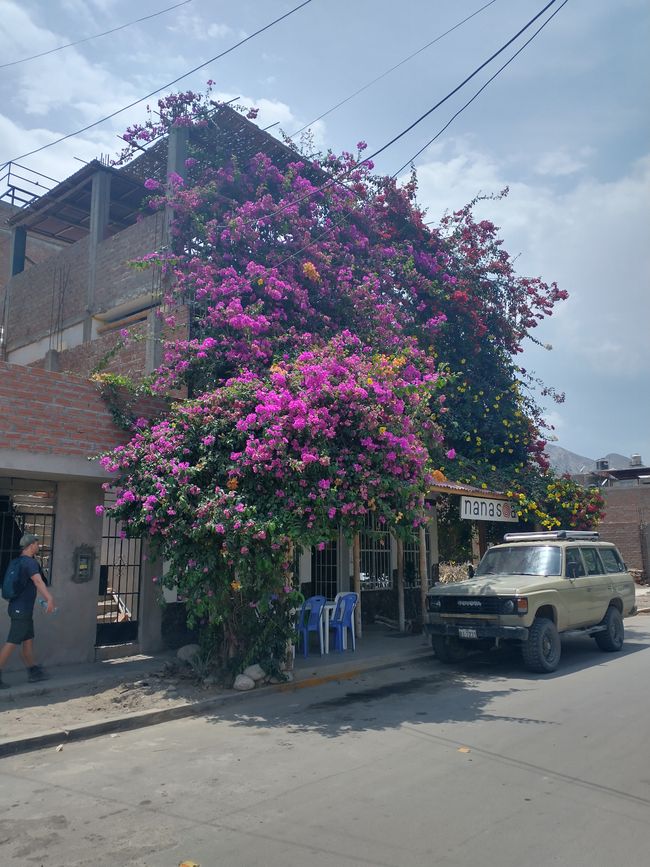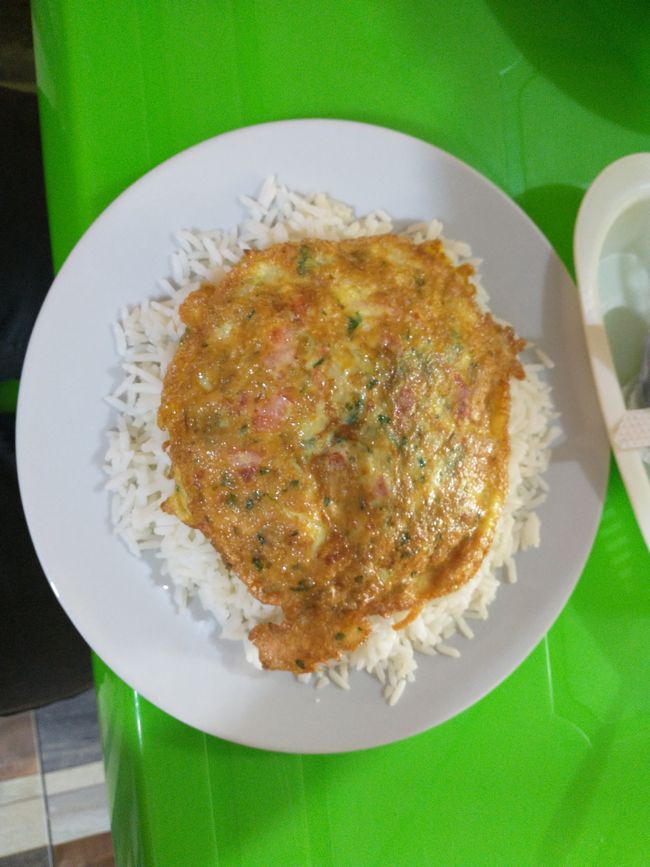Paracas and Nazca
Oñemoherakuãva: 15.03.2024
Ejesuscribi Boletín de Noticias-pe
Today we're going to Paracas, Freddy drove me to the bus station on his scooter. In Pisco I changed to a Colectivo and I was there. Buses and Colectivos run here very often and I go in every direction. But of course, there are no trains and many will not have cars. This is how the quantity of public transport should be, not necessarily the quality. Paracas is very small and touristy. Lots of backpacker and surfer dudes in a small space. There's a nice beach promenade, the food is delicious, but there's not much else here. It was a lazy day.
Day 11, the bed in the hostel is bad, the rest is fine. In the morning I did one of two things you can do here, the boat tour. You can see rocks, birds, guano, a Humbold penguin and sea lions. And of course the candlestick, a work of art on a mountain from a pre-Columbian culture, which is probably supposed to represent a cactus. You can see this symbol everywhere in Paracas. In the afternoon I went to Pisco, I needed cash again. I'm slowly getting to grips with the terms that are important to me in Spanish. And the unwritten rules of traffic are becoming increasingly clear to me. Pisco is not very exciting, like everywhere else there is the Plaza de Armas and a cathedral. It was destroyed in an earthquake in 2008 and a rather unsightly new one was built. Another rule when traveling: eat where the locals eat. It works somehow, they also want to earn something. To drink there is a brownish drink made from fermented rice, chicha. Takes getting used to. Well, everything done, so back to Paracas to the beach. In the evening I had a few beers with Maude from Belgium. Her ex-husband emptied her account that day and now she has almost no money left. But otherwise entertaining person and very funny.
The next day, again in the morning, I did the second thing there is to do here. Visit the national park. We started off with a rather rickety bike, a total of 30 km. What can I say, it's one of the driest places on earth, just desert, rocks and the ocean. Gets boring quickly. There was also a small museum and a salt beach with flamingos. I then changed my plans, I no longer wanted desert. So instead of going to Ica, I went to Nazca. Maude was in a better mood, she went all the way to Ica and then took the 16-hour bus ride to Cusco. The landscape became more varied, the mountains of the Andes, the occasional green valley, poor settlements on the Transamericana and, of course, lots of rocky desert. Nazca may be small, but it seems lively. Quite green and surrounded by mountains.
Day 13, today I teamed up with Jack from Australia (what mush English). We hiked to ancient wells and water pipes and to an old Inca settlement. Hitchhiking back in Nazca, there was a museum with all sorts of finds, including the preserved head of a sacrificed woman. The theme here runs through all cultures. They must have empirically determined that it doesn't help. They had sophisticated irrigation systems and stuff like that. After a very long siesta, Nazca is the hottest place so far, we took a tour to a few Nazca lines. Interesting, but not great engineering. You simply removed 2-3 cm of soil and the desert preserved it. The lines were first discovered by a German woman, unfortunately after the Transamericana destroyed and damaged some. There are hundreds of these Nazca culture glyphs over a huge area. Not bad already. So then Ciao desert, we take the night bus to Arequipa, 10 hours for 100 soles. Very comfortable, but you still sleep in a seat. The safety precautions were very strict, there are reasons for that. You drive at night through a sparsely populated area where drug smugglers are probably active. The last few days have been tiring. I need silence.
Ejesuscribi Boletín de Noticias-pe
Mbohovái
